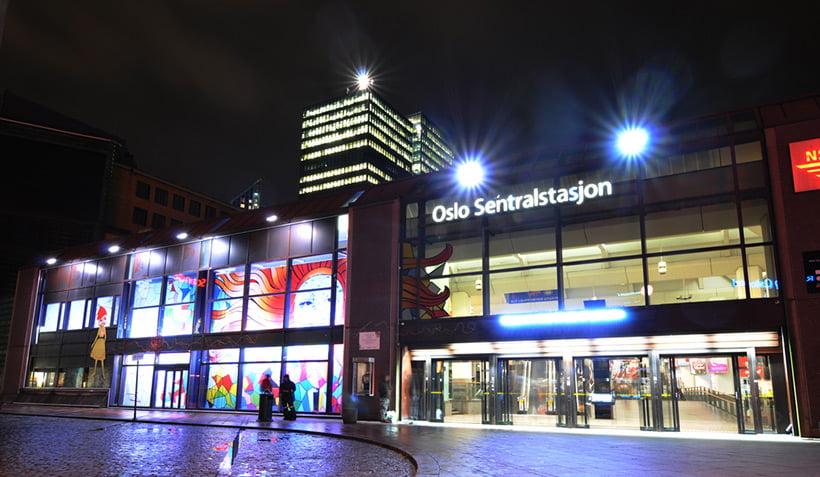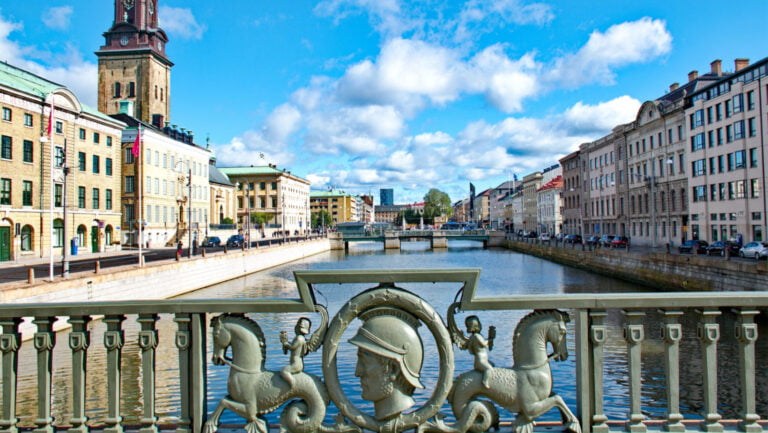A proposed Norway-Sweden high-speed rail would slash journey times between Oslo and Gothenburg. But there is a long process ahead and plenty of critics of the plans.
Several local governments in Sweden have formed a consortium seeking to raise funds to transform plans for a high-speed rail line to Norway into a reality.

Travelling by rail in Norway is typically a slow yet enjoyable experience. High-speed rail is difficult due to the country’s mountainous terrain. But from Oslo into Sweden, it’s a different story.
The proposed Skagerrakbanan line would improve travel connections and boost regional economies, according to the group. However, there are critics taking aim at the construction schedule and cost, together with the feasibility of the project.
A potential journey time of just one hour
To travel between the two Scandinavian cities of Oslo and Gothenburg today takes time. To drive the 291km takes at least three hours, longer if you are stopped at the border.
By rail, the journey time is about 3 hours and 40 minutes. Those behind the Skagerrakbanan project claim a 256km double-track elecrified railway would slash journey times between the two cities to just one hour.
Alongside non-stop services running at up to 400kph, the project would see services that stop at Kungälv, Stenungsund, Uddevalla, Munkedal, Lysekil, Tanum and Strömstad in Sweden.

Stops on the Norwegian side of the Swedish border would include Halden, Sarpsborg/Fredrikstad, Rakkestad, Askim and Ski.
The journey time including stops would be less than two hours, according to those behind the project.
Economic boost on both sides of the border
Project bosses claim the cost of a one-way ticket at up to SEK 700. At today’s exchange rates, that is about NOK 675.
They say with such a project in place, it would be “perfectly feasible” to live in one city and work in another, or anywhere along the route.
“The Østfold/Bohus border region will become an expanding economic growth region with extensive commuting and cultural exchanges between the countries,” states the project website.

“A community that spans the border between two countries will free up untapped potential for education, work, tourism and culture,” it adds.
State of the project
Of course, plans are one thing. Turning them into reality is quite another. While train travel is undoubtedly on the up across Europe these days, there are many complexities with this project not least its cross-border nature.
Despite this, project bosses claim the project could be a reality as soon as 2028. Given that funding is not yet in place, that seems an optimistic target, to say the least.
High speed rail does not come cheap. Costs are estimated at SEK 200 billion. That’s about NOK 192 billion at today’s exchange rates. However, the project team emphasises that the goal is not to involve taxpayer’s money.
Six municipalities in Sweden’s Bohus county have formed a consortium to seek to raise funds for the high-speed rail link. Skagerrakbanan wants to create a viable commercial enterprise which will develop, finance, build and run the railway line.

Government approval is by no means assured. Environmental impact assessments are one of the most important steps. However, by not relying on taxpayer’s money, the team hope the approval process would be quicker.
Critics of the project
“I think it is a crazy idea,” said Lars Gunnar Pettersen to Sveriges Radio. He lives in Sweden close to the Norwegian border. He is part of a group of people opposed to the line.
“There is not enough population density anywhere in Sweden for high-speed rail. Particularly not on the west coast between Gothenburg and Oslo,” he said.
There are also plenty of critics of other high-speed rail projects in Sweden. Issues highlighted include building on agricultural land, the climate impact in connection with the long construction period and the project costs.
What do you think? Is high-speed rail between Sweden and Norway feasible? Let us know in the comments.


As someone who just moved to Norway (Lillestrøm) and have a friend in Gothenburg this would be amazing. Of course I recognize the impacts this would have during on the locals during construction, but the resulting economic gains would surely make up for that.
The next logical step would be to connect to Copenhagen. This would have have major implications in terms regional travel, especially after the Fehmarn Belt fixed link is completed. Overnight sleeper trains from Europe to Norway and Sweden would become feasible.
We have to think big picture!